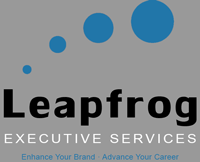Lasting Impressions
Category : 2018
“How you begin is how you are listened to,
and how you end is how you are remembered.”
– Unknown
An impression. You create one in seconds. A poor one can follow you for a lifetime.
From early childhood, parents teach the importance of making a good first impression. Few of us realize how quickly impressions are created, how long they last, and how difficult they can be to dislodge from someone’s mind.
An impression is an idea, feeling, or opinion you create about someone or something – often without conscious thought. For professionals and companies today, like giving attention to a brand, the impact of first-and last impressions can’t be under-emphasized.
Some argue, “Look at billionaires. They don’t care about impressing people.” Yes, from Mark Zuckerberg’s characteristic T shirt and hoodie to Bill Gates’ mop top haircut to Sergey Brin’s “I’m still a geek” look, the uber-wealthy do sport some intriguing styles. And when you are a member of the Forbes Three Comma Club, you can dress any way you want. Until then, impressions matter.
Corporations that understand the importance of impressions jealously guard how a company name and logo appear. Surveys, focus groups, and market analysis are an integral part of any marketing effort to determine the impact of an impression before it is attempted.
In many situations, our impressions have little, if any tangible evidence to support them. The Association for Psychological Science reports that a series of experiments by two Princeton psychologists determined that an impression from a face is formed in a tenth of a second, and subsequent longer exposures don’t significantly alter the “first impression.” Research found people judge trustworthiness the quickest, and over time, those judgments don’t change.
That unfortunate reality is compounded when the first impression is created online. Jeremy Biesanz, Ph.D. at the University of British Columbia worked with more than 1,000 people exploring the accuracy and bias of first impressions formed under varying circumstances. Biesanz discovered the accuracy of impressions varied little between mediums, but impressions formed on-line tend to be more negative than those created in-person.
Another study found that after a first impression is formed, people tend to hang on to the impression, even after they are given facts that contradict what is believed. Add to that our universal tendency toward confirmation bias (seeking and assigning more weight to evidence that supports a conclusion) and all of us are forced to give at least some attention to caring about the impressions we create.
This does not mean professionals should shift their attention to impression management. Whether a company or a professional, manage your brand well, and you will have less difficulty managing the impressions you create.
Here are three areas where impressions matter:
Thanks to social media, you no longer have a separate personal and professional life or presence-you have a life and anyone, anywhere can dig into it and draw conclusions about you without ever meeting or interacting with you. A casual scan at LinkedIn profiles shows glamour shots, people with their children, a Hollywood character’s photo (likely in violation of a copyright), wedding photos, a shirtless weightlifter, or someone slugging their way through a Tough Mudder. Facebook images and postings often leave little room for interpretation. Like it or not, you must be conscious of what your social media presence says about you. For companies, managing social media impressions is as much about watching what others say about you as about managing what you say about yourself.
A quick search for resume images will give you dozens of examples of documents that quickly create an impression that even a great interview could have trouble erasing. Knowing that words comprise only six per cent of how we communicate, relying on a resume to create a first impression is a risky proposition, at best. A well-written resume focused on defined outcomes should reinforce an impression-not be the first attempt to create one.
The first few seconds of an interview are crucial for creating a positive impression. Mishandling the innocuous, “Tell me about yourself” question can set an interview on a course that will be difficult to correct. Assuming a business casual dress code or becoming too informal during an interview can easily cause the conversation to derail. If you are the interviewer, resist your inherent tendency to make a judgment in the first seconds of a meeting and spend the next hour looking for evidence to convince yourself you are right. As you draw mental conclusions, ask yourself, “What am I missing?” or “How could I be wrong?” or “Where is there evidence that disconfirms my conclusion?”
Malcom Gladwell reminds us, “We don’t know where our first impressions come from or precisely what they mean, so we don’t always appreciate their fragility.”
Company, executive, or professional, the impression you create is fragile. Handle it with care.
